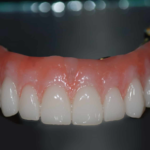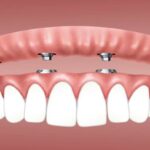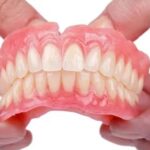When it comes to restoring your smile and maintaining oral health, dental crowns and bridges play a crucial role. Whether you’re dealing with missing teeth or deteriorating ones, understanding the difference between these two procedures is essential for making informed decisions about your oral care.
What Are Dental Crowns?
Dental crowns, also known as caps, are custom-made covers for damaged, decayed, or weakened teeth. These restorations are designed to improve the strength, shape, and appearance of the affected teeth. They can also be used to support dental bridges or cover dental implants.
Types Of Dental Crowns
There are several types of dental crowns available, including:
- Metal crowns
- Porcelain-fused-to-metal crowns
- All-ceramic or all-porcelain crowns
- Zirconia crowns
What Are Dental Bridges?
Dental bridges are used to replace one or more missing teeth. They consist of two crowns, which are placed over the adjacent natural teeth, and a false tooth or teeth in between, filling the gap left by the missing teeth.
Types Of Dental Bridges
Common types of dental bridges include:
- Traditional bridges
- Cantilever bridges
- Maryland bonded bridges
- Implant-supported bridges
Key Differences Between Dental Crowns and Bridges
| Dental Crowns | Dental Bridges |
|---|---|
| Used to restore damaged or weakened teeth | Used to replace missing teeth |
| Custom-made for individual teeth | Consist of two crowns and false teeth |
| Do not fill gaps from missing teeth | Fill gaps left by missing teeth |
| Can be used to support dental bridges | Require natural teeth or implants for support |
Advantages of Dental Crowns and Bridges
Both dental crowns and bridges offer numerous benefits, including:
- Restoring functionality and aesthetics
- Preventing further damage to teeth
- Improving the ability to chew and speak
- Supporting facial structure and preventing teeth from shifting
Longevity and Maintenance
The lifespan of dental crowns and bridges can vary, but with proper care and regular dental check-ups, they can last for many years. Good oral hygiene, including brushing, flossing, and routine dental visits, is essential for maintaining the health and longevity of dental restorations.
Potential Drawbacks
While dental crowns and bridges offer numerous benefits, there are some potential drawbacks to consider:
- Risk of gum disease with dental bridges
- Costlier and more complex maintenance for certain bridge designs
- Possible sensitivity or discomfort after crown placement
Seek Professional Advice
Ultimately, the decision to get dental crowns or bridges should be based on a thorough evaluation by a qualified dental professional. Your dentist can assess your individual needs and recommend the most suitable treatment to restore your smile and oral health.
Frequently Asked Questions
What Is Better, A Crown Or A Bridge?
A crown is better for a deteriorating tooth, while a bridge is ideal for missing teeth.
How Long Do Crowns And Bridges Last?
Dental crowns and bridges can last 5-15 years, but proper care can extend their lifespan. Regular dental check-ups and good oral hygiene are crucial for longevity.
What Is The Downside Of A Dental Bridge?
The downside of a dental bridge is a higher risk of gum disease due to difficulty in oral hygiene, especially with complex designs. Sophisticated designs are easier to clean but cost more.
Is Crown And Bridge Painful?
No, getting a crown and bridge is usually not painful. Local anesthesia is used to numb the area before preparing the tooth for the crown or bridge. In fact, the procedure can relieve tooth pain and sensitivity. A crown is used to repair a damaged tooth, while a bridge replaces missing teeth.
Conclusion
Dental crowns and bridges are valuable dental treatments that can enhance both the function and appearance of your smile. By understanding the differences between these procedures and their potential benefits and drawbacks, you can make informed decisions about your oral care and work towards achieving a healthy, beautiful smile.
For more information about dental crowns and bridges or to schedule a consultation, contact Enamel Dentistry today.














